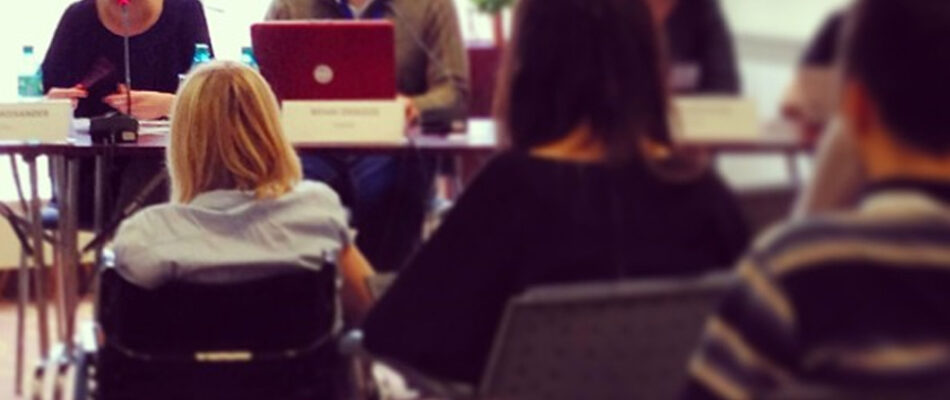
Strategies and resources for student support services are needed
BUCHAREST – A genuine commitment to implementing agreed goals for student support within the Bologna context is lacking in South-East Europe, according to the participants of a seminar on the social dimension of Higher Education held in Bucharest from 22 to 24 February.
National or institutional strategies to address the needs of underrepresented students hardly exist in the region. In addition, the resources that are allocated for this subject are insufficient. The support would need to be increased in order to provide better services for students throughout the region and in order for the already existing policies to have a bigger impact.
The students that participated in the seminar were also worried about the implications political instability might have on student rights and on the welfare and support services of students in the region. In some countries, corruption and lack of transparency make it impossible to improve those services for the time being.
Organised by ANOSR
Representatives of student unions from South-East Europe attended this seminar in Bucharest organised by ANOSR, the national union of students in Romania. The participants came from local students’ unions in Romania, Serbia, Bulgaria, Macedonia and Slovenia in addition to guests from Poland, Armenia and Finland. Five members of the Executive Committee of the European Students’ Union took part in the seminar, giving inputs on European policies and the quality assurance of student support services.
Inequality affects society
Mihai Dragos, the chairperson of ANOSR, ended the seminar formally with concluding remarks. “The inequalities that are not looked into already in higher education will affect the society at large. Thus, it should be in the interest of the whole society to provide adequate resources for student support services,” he said.
The participants strongly believed that education must be treated as a public good and public responsibility and societies should provide state funded education and tools that address and remove the effect of any disadvantage one might have due to socio-economic background or special individual needs in accessing, progressing through and graduating from higher education. Governments and higher education institutions were encouraged to provide a number of services to all students regardless of their socio-economic backgrounds, including affordable housing, health insurance and free internet access to name a few of the focus points the participants agreed on.
A statement was adopted at the meeting highlighting the specific needs of the region and the services to be provided, which can be downloaded here.
— END —
For more information, please contact:
Taina Moisander, ESU Vice-chairperson: +32/479.591.499 // taina@esu-online.org or Robert Hlynur Baldursson, ESU Communications Manager: +32/473.669.894 // robert@esu-online.org

The European Students’ Union, headquartered in Brussels, is the umbrella organisation of 47 national unions of students from 39 European countries. ESU represents and promotes the educational, social, economical and cultural interests of students at the European level. Through its member unions, ESU represents over 11 million students in Europe. To find out more about ESU, follow us on Twitter @ESUtwt, check out or Facebook page or visit www.esu-online.org. ESU celebrates its 30th anniversary in 2012.
